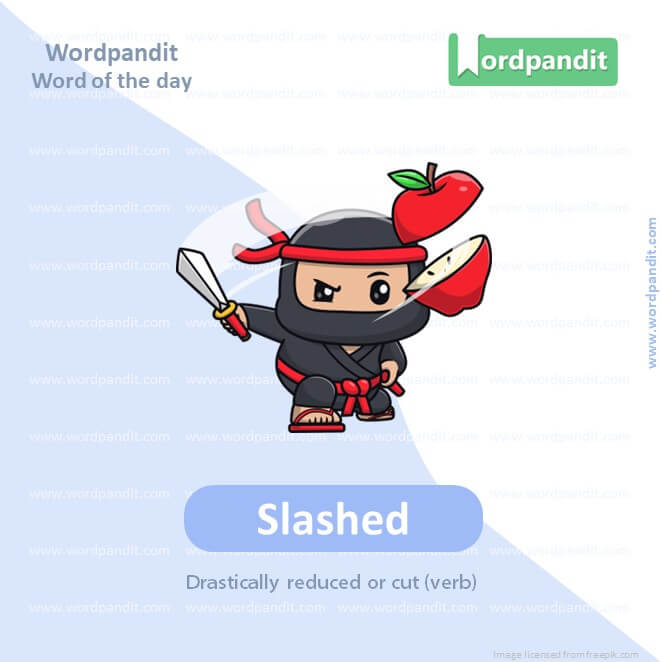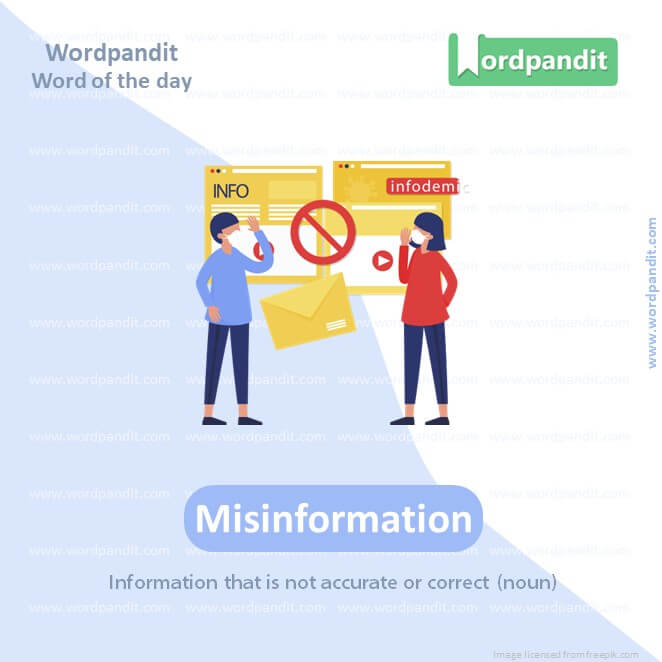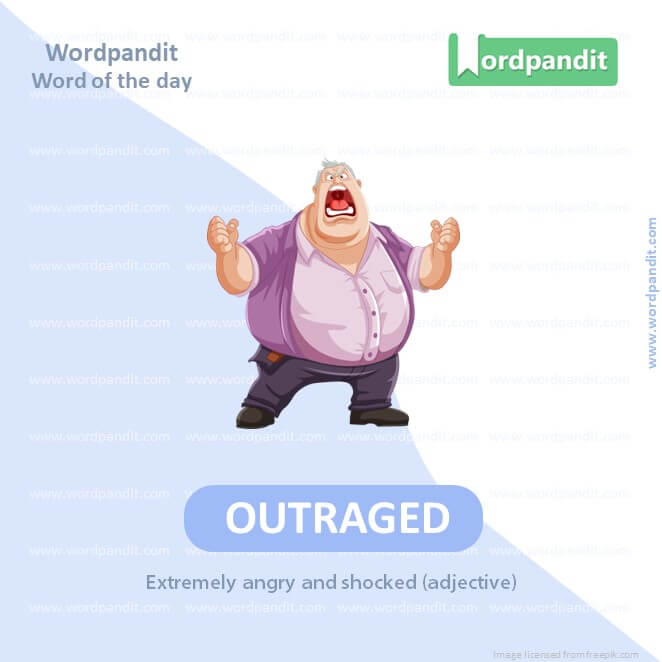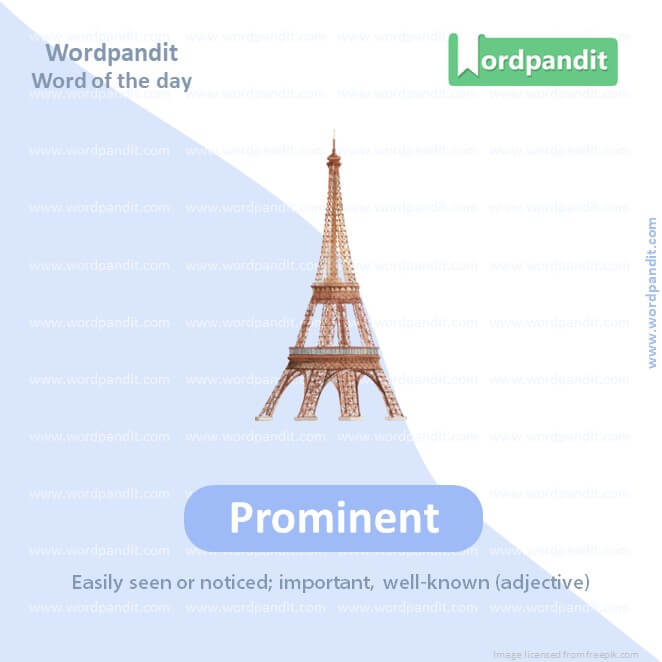Daily Vocabulary Words: List of Daily Used Words in Leading Indian Newspapers
Hi there. Welcome to this special section @ Wordpandit. Our endeavour here is straightforward: highlighting daily vocabulary words that you would come across in leading newspapers in the country. We have included the following newspapers in our selection:
• The Times of India
• The Economic Times
• Hindustan Times
• Mint
• Indian Express
We are putting in extensive work to develop your vocabulary. All you have to do is be regular with this section and check out this post daily. This is your repository of commonly used words; essentially, we are posting a list of daily used words. Hence, this has significant practical application as it teaches you words that are commonly used in leading publications mentioned above.
Visit the website daily to learn words from leading Indian newspapers.

WORD-1: Slashed
CONTEXT: After Elon Musk bought Twitter (now X) in 2022, the social media company got rid of many of its moderators, slashed the system whereby users could flag tweets for review, and ramped up a different system to fight misinformation—a form of crowdsourcing called Community Notes.
SOURCE: Livemint
EXPLANATORY PARAGRAPH: Imagine you have a big piece of paper and you use scissors to make a lot of cuts all over it. When you cut or reduce something significantly like that, it’s called “slashed.”
MEANING: Drastically reduced or cut (verb).
PRONUNCIATION: SLASHD
SYNONYMS: Cut, reduced, lowered, decreased, trimmed
USAGE EXAMPLE:
1. Prices were slashed during the sale.
2. The budget for the project was slashed due to financial constraints.
3. He slashed the tires in a fit of anger.
4. The company slashed jobs to cut costs.
WORD-2: Ramped up
CONTEXT: After Elon Musk bought Twitter (now X) in 2022, the social media company got rid of many of its moderators, slashed the system whereby users could flag tweets for review, and ramped up a different system to fight misinformation—a form of crowdsourcing called Community Notes.
SOURCE: Livemint
EXPLANATORY PARAGRAPH: Imagine you’re riding your bike faster and faster up a ramp to jump higher. “Ramped up” means to increase something or make it more intense, just like speeding up your bike.
MEANING: Increased or grown in intensity or amount (verb).
PRONUNCIATION: ramped UP
SYNONYMS: Increased, escalated, intensified, boosted, amplified
USAGE EXAMPLE:
1. Production was ramped up to meet the high demand.
2. Efforts were ramped up in the search for the missing child.
3. The company ramped up its marketing campaign before the product launch.
4. Security was ramped up for the event.

WORD-3: Misinformation
CONTEXT: After Elon Musk bought Twitter (now X) in 2022, the social media company got rid of many of its moderators, slashed the system whereby users could flag tweets for review, and ramped up a different system to fight misinformation—a form of crowdsourcing called Community Notes.
SOURCE: Livemint
EXPLANATORY PARAGRAPH: Imagine telling your friend that dragons live in the park, but you’re just making it up. “Misinformation” is when wrong or untrue information is spread, often by mistake.
MEANING: Information that is not accurate or correct (noun).
PRONUNCIATION: mis-in-for-MAY-shun
SYNONYMS: Disinformation, falsehoods, untruths, inaccuracies, fabrications
USAGE EXAMPLE:
1. During the crisis, there was a lot of misinformation on social media.
2. The article helped to clear up some common pieces of misinformation.
3. He was criticized for spreading misinformation.
4. Combating misinformation is crucial in maintaining public trust.
WORD-4: Crowdsourcing
CONTEXT: After Elon Musk bought Twitter (now X) in 2022, the social media company got rid of many of its moderators, slashed the system whereby users could flag tweets for review, and ramped up a different system to fight misinformation—a form of crowdsourcing called Community Notes.
SOURCE: Livemint
EXPLANATORY PARAGRAPH: Imagine if you wanted to clean up the school playground and asked everyone in school to help by picking up one piece of trash each. “Crowdsourcing” is when you get a lot of people to help solve a problem or create something by each doing a small part.
MEANING: The practice of obtaining information or input into a task or project by enlisting the services of a large number of people (noun).
PRONUNCIATION: KROWD-sors-ing
SYNONYMS: Collaborative effort, mass participation, collective contribution, open sourcing, public involvement
USAGE EXAMPLE:
1. The company used crowdsourcing to gather ideas for its new product.
2. Crowdsourcing was used to fund the independent film project.
3. The community project was a result of successful crowdsourcing.
4. They launched a crowdsourcing campaign to solve the complex problem.

WORD-5: Outrage
CONTEXT: A wave of outrage followed these changes. But the Community Notes feature has the benefit of transparency and shows scientific and medical merit. And a new academic review suggests it’s working—a least for scientific issues.
SOURCE: Livemint
EXPLANATORY PARAGRAPH: Imagine someone takes your favorite toy without asking and breaks it. You’d feel really upset and angry—that’s “outrage.” It’s a strong feeling of shock and anger that you get when something unfair or wrong happens.
MEANING: Extremely angry and shocked (adjective).
PRONUNCIATION: OUT-rayj
SYNONYMS: Indignation, fury, anger, wrath, scandal
USAGE EXAMPLE:
1. The decision caused outrage among the community.
2. He expressed his outrage at the unfair treatment.
3. The scandal sparked public outrage.
4. There was outrage over the environmental damage caused by the company.
WORD-6: Hurrah
CONTEXT: The biggest “hurrah” moment for India at the 77th edition of the Cannes Film Festival was when Japanese master Hirokazu Kore-eda announced Payal Kapadia’s debut feature, All We Imagine As Light, as the winner of the Grand Prix
SOURCE: The Indian Express
EXPLANATORY PARAGRAPH: Imagine everyone cheering loudly at a game when your team scores a goal. “Hurrah” is a cheer or shout of joy or encouragement, just like when people cheer at a sports game.
MEANING: A shout of joy, encouragement, or celebration (noun).
PRONUNCIATION: hoo-RAH
SYNONYMS: Cheer, acclaim, applause, exultation, jubilation
USAGE EXAMPLE:
1. The crowd gave a big hurrah when the winner was announced.
2. She let out a hurrah after completing the marathon.
3. The final hurrah of the concert was spectacular.
4. His speech ended with a hurrah from the audience.

WORD-7: Prominent
CONTEXT: As a beaming Kapadia moved towards the stage to receive the award, she grabbed Divyaprabha’s hand and pulled the actor to walk with her, as the other two actors with prominent roles in the film — Kani Kusruti and Chhaya Kadam — followed them.
SOURCE: The Indian Express
EXPLANATORY PARAGRAPH: Think about a mountain that stands out in the landscape because it’s so big and tall. “Prominent” means something that is very noticeable or important, like that mountain.
MEANING: Easily seen or noticed; important, well-known (adjective).
PRONUNCIATION: PROM-uh-nent
SYNONYMS: Conspicuous, notable, distinguished, eminent, prominent
USAGE EXAMPLE:
1. She is a prominent figure in the world of science.
2. The issue became prominent during the discussions.
3. He played a prominent role in the negotiations.
4. The building is prominent in the city skyline.

WORD-8: Applauded
CONTEXT: The writer-director received the award from producer-actor Viola Davis, while jury president Greta Gerwig looked on and applauded.
SOURCE: The Indian Express
EXPLANATORY PARAGRAPH: Imagine you did a great job in your school play and at the end, everyone in the audience starts clapping for you. When people clap their hands like this to show they are pleased, it’s called “applauded.”
MEANING: To show approval or praise by clapping hands (verb).
PRONUNCIATION: uh-PLAW-ded
SYNONYMS: Praised, cheered, commended, celebrated, acclaimed
USAGE EXAMPLE:
1. The audience applauded loudly after the performance.
2. Her efforts were applauded by the company.
3. He was applauded for his honesty.
4. The new policy was widely applauded.
WORD-9: Resounding
CONTEXT: Moments like this are what cinematic dreams are made of. The presence of Davis, Gerwig and Kore-eda — who are known for their pioneering work and have established themselves as champions of cinema — as Kapadia accepted her award, underlines the importance of celebrating new cinematic voices with a resounding validation.
SOURCE: The Indian Express
EXPLANATORY PARAGRAPH: Imagine hitting a big drum and the sound is so loud and clear that everyone can hear it. “Resounding” is like that drum—it means something is very loud, clear, or impressive.
MEANING: Unmistakable; emphatic or loud (adjective).
PRONUNCIATION: ree-ZOWN-ding
SYNONYMS: Emphatic, thunderous, ringing, loud, definitive
USAGE EXAMPLE:
1. The team won with a resounding victory.
2. Her speech met with resounding approval.
3. The event was a resounding success.
4. They achieved resounding results from the campaign.
WORD-10: Validation
CONTEXT: Moments like this are what cinematic dreams are made of. The presence of Davis, Gerwig and Kore-eda — who are known for their pioneering work and have established themselves as champions of cinema — as Kapadia accepted her award, underlines the importance of celebrating new cinematic voices with a resounding validation.
SOURCE: The Indian Express
EXPLANATORY PARAGRAPH: Imagine you drew a picture and showed it to your teacher, and she said it was really good. That made you feel happy and sure that your drawing was nice. “Validation” is when someone confirms that something is good or correct.
MEANING: Confirmation that something is based on truth or acceptable (noun).
PRONUNCIATION: val-i-DAY-shun
SYNONYMS: Confirmation, endorsement, ratification, approval, authentication
USAGE EXAMPLE:
1. She felt a sense of validation after her work was recognized.
2. The experiment provided validation for the theory.
3. The document required validation by the authorities.
4. His feelings of success needed no further validation.
Vocabulary English
In the fascinating journey of language exploration, ‘vocabulary English’ stands as a powerful pillar. It represents the diverse array of words that bring thoughts and emotions to life. However, to unlock the full potential of ‘vocabulary English’, it’s necessary to adopt a comprehensive and strategic approach.
Understanding ‘vocabulary English’ goes beyond the mere repetition of words. It demands an intricate weave of understanding, memorization, and application. To grasp the essence of the ‘vocabulary English’, diversify your language resources. Engage with novels, biographies, news articles, and digital content to introduce yourself to words in real-world contexts.
A key to mastering ‘vocabulary English’ involves leveraging effective memory techniques. Use flashcards and digital apps that support active recall and spaced repetition. Mnemonic devices can also be beneficial. Establishing personal, visual, or narrative connections to words foster better recall and understanding.
Consistent exposure to ‘vocabulary English’ greatly enhances learning. Create dedicated time slots for regular vocabulary practice. This method not only consolidates learnt vocabulary but also introduces new words on a daily basis, ensuring a balanced and continuous learning process.
Practice holds the power to transform your ‘vocabulary English’ learning experience. Application of learnt words in daily conversations, professional communication, or digital platforms embeds them deeper into your long-term memory.
In essence, embracing ‘vocabulary English’ is a marathon, not a sprint. It requires immersion in various resources, using memory-enhancement techniques, continuous exposure, and above all, incessant practice. As you navigate this path, you’ll watch your ‘vocabulary English’ grow, raising your language proficiency and connectivity with the English-speaking world. It’s a fascinating journey that opens doors to different cultures, experiences, and opportunities. So, step forth, embrace ‘vocabulary English’, and let the journey begin!











